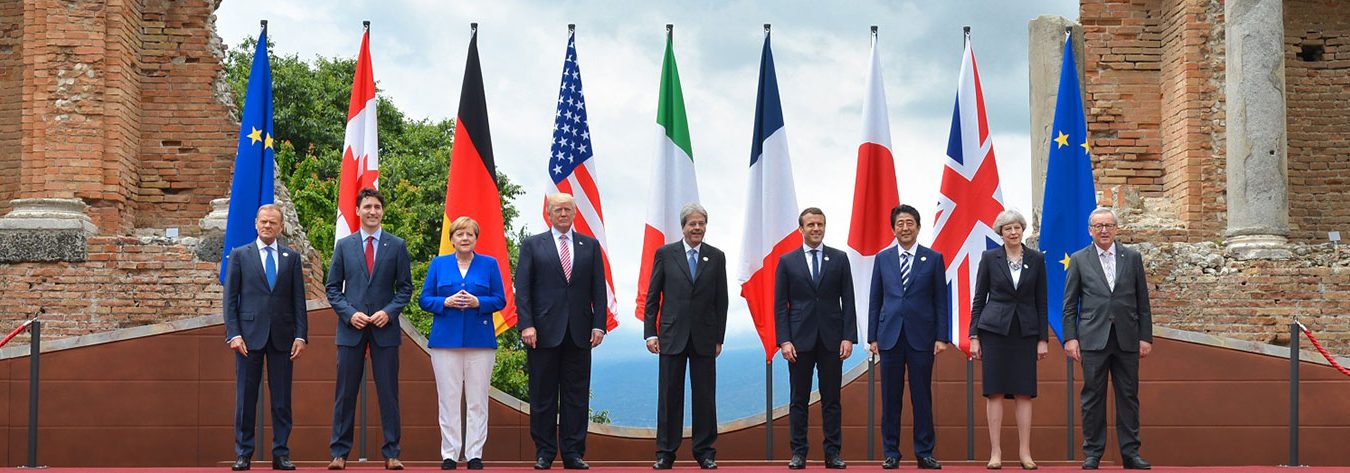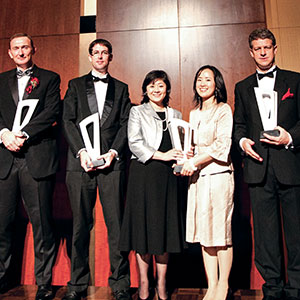British Prime Minister Theresa May and her Japanese counterpart, Shinzo Abe, both took part in the recent G7 meeting in the Sicilian town of Taormina in Italy. The outcome of the annual meeting of the leaders of seven nations (the United States, Britain, Canada, France, Germany, Italy and Japan) was mixed.
There was a general commitment to fight trade protectionism, despite early fears that US President Donald Trump’s “America First” policy would skew the discussions. Another key area was the threat posed by North Korea which, as the G7 meeting drew to a close, launched its third missile test in as many weeks. The meeting called on the North to immediately abandon its nuclear and missile programmes. So far, so good.
But when it came to the subject of climate change, it was a different story. Six of those attending confirmed their commitment to the 2015 Paris Agreement. The hold out was the United States, one of the world’s largest polluters. During the election campaign, Trump had suggested he would take the United States out of the accord if elected.
At the G7 he prevaricated, suggesting he was considering his options. Since then, he has announced that the United States would in fact be leaving the Paris climate accord, in what is a major blow to the effort to reduce carbon dioxide and other contaminants in the atmosphere. Trump favours supporting the US coal industry, which is a major source of pollution. Indeed, the final communiqué from the meeting had acknowledged that the United States was not yet ready to commit to the agreement.
Closer to home
With the G7 behind them, the Japanese and British prime ministers can now focus on domestic issues. For Abe, now the nation’s third-longest-serving prime minister, that includes focusing on next year’s LDP election, which under new rules could give him a third consecutive three-year term as president. However, his administration faces a number of controversies and scandals, some of which involve the prime minister himself. For all that, his support rating remains comparatively high.
Theresa May returned to the UK to continue campaigning for the snap general election she called ostensibly to strengthen her hand at the tiller of negotiations for Brexit. Campaigning by all the parties was briefly suspended in the wake of the Manchester Arena atrocity in which 23 people were killed by a suicide bomber.
She immediately faced calls to defend the so-called “dementia tax”, which she said was a means to ensure no-one would need to sell their home to afford care in later life. May declined to join a televised multi-party debate in which participants discussed this and other pressing issues, including education and the highly controversial subject of immigration, on which Labour Party Leader Jeremy Corbyn refused to be drawn.
One of the most notable features of the election was that May campaigned on a platform that, for the first time in many years, distanced itself from the Thatcher-inspired manifestos of the past:
“We do not believe in untrammelled free markets. We reject the cult of selfish individualism. We abhor social division, injustice, unfairness and inequality. We see rigid dogma and ideology not just as needless, but as dangerous”.
This is, perhaps, the mantra of “Mayism” and points the way to the future as we embark on the no-doubt difficult negotiations over Brexit, regardless of who is in charge.
Many questions remain unanswered about those negotiations, including who owes whom what. The European Union (EU) insists the UK faces a “divorce bill”. Others claim the UK owes nothing, while still others claim the EU actually owes the UK. But nobody is holding their breath.
Meanwhile, Japan is watching all of this carefully. Japanese firms in the UK employ more than 140,000 people and the long-term effects of Brexit are anyone’s guess.







